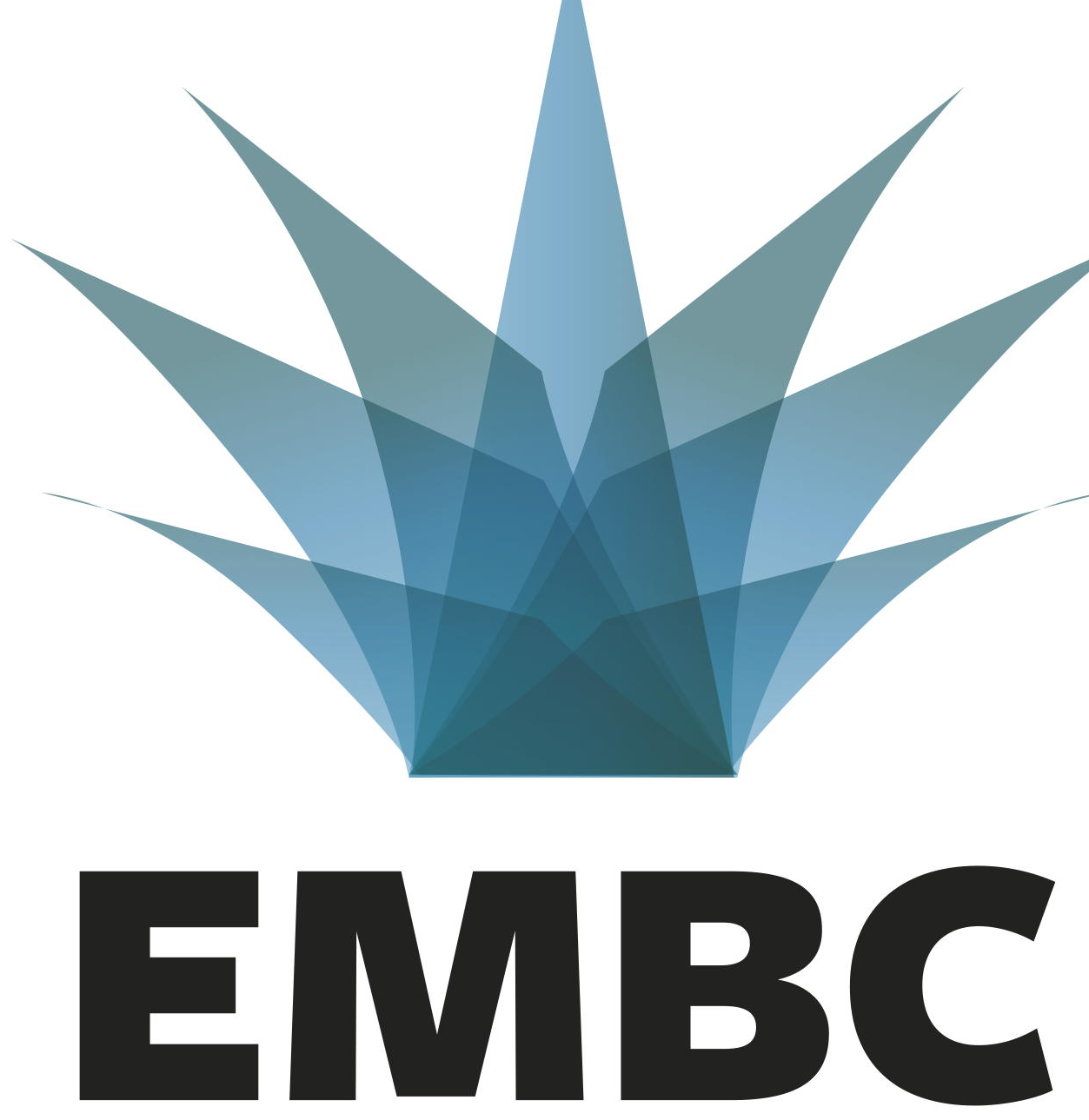Theme Keynote Speakers

Catherine Marque
Theme Keynote | Theme 1: Biomedical Signal Processing
Catherine Marque is presently Professor at Compiègne University, Compiègne, France, in the UMR 7338 Biomechanics and Bioengineering (BMBI) lab. After a graduation in mechanical engineering from ENSAM (Paris, France), and a Master degree in Biomedical Engineering from the Ecole Polytechnique de Montréal (Canada), she received the Ph.D. degree and the “Habilitation à diriger des recherches” (HDR) from Compiègne University. Her research focuses on biomedical signal processing and modeling. She is interested in the study of uterine contractility, by processing the uterine electrical activity recorded on the mother’s abdomen (electrohysterogram, EHG) in order to detect preterm labor. Since she integrated the BMBI research lab, she has been developing an international team that works on processing and modeling the EHG. Her aim is to understand the links existing between EHG characteristics and the physiological phenomena controlling uterine contraction efficiency (cell excitability, uterine synchronization) for clinical diagnosis purpose. She has recently developed a multi-scale electrical (cell, tissue, organ, abdomen) and multi-physics (electrical, mechanical) model that permits to link EHG characteristics to the uterine muscle behavior (channel dynamics, electrical diffusion, sensitivity to stretching, mechano-transduction), as well as specific processing tools to investigate the EHG connectivity. She has been coordinator of many national and international research projects that permitted her to develop various collaborations. She has taken the responsibility for administrative tasks, related either to teaching (engineer, Master, Doctoral education) or to research management (research unit, Regional research group…).
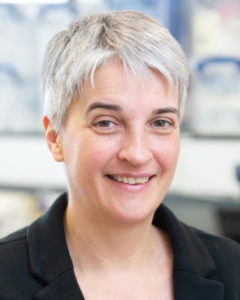
Julia A. Schnabel
Theme Keynote | Theme 2: Biomedical Imaging and Image Processing
Julia A. Schnabel is Professor of Computational Imaging and AI in Medicine at Technical University of Munich (TUM Liesel Beckmann Distinguished Professorship) and Director of a new Institute of Machine Learning in Biomedical Imaging at Helmholtz Center Munich (Helmholtz Distinguished Professorship), with secondary appointment as Chair in Computational Imaging at King’s College London. She graduated in Computer Science (equiv. MSc) from Technical University of Berlin, Berlin, Germany, and was awarded the PhD in Computer Science from University College London, UK. In 2007, she joined the University of Oxford, UK as Associate Professor in Engineering Science (Medical Imaging), where she became Full Professor of Engineering Science by Recognition of Distinction in 2014. She joined King’s College London as a new Chair in 2015, and in 2021 joined TUM and Helmholtz Munich for her current positions. Her research interests include machine/deep learning, nonlinear motion modeling, as well as multimodality and quantitative imaging, for cancer imaging, cardiac imaging, neuroimaging and perinatal imaging. Dr. Schnabel has been elected Fellow of IEEE (2021), Fellow of ELLIS (2019), and Fellow of the MICCAI Society (2018). She is an Associate Editor of the IEEE Transactions on Medical Imaging on whose steering board she serves since 2021, the IEEE Transactions of Biomedical Engineering, on the Editorial Board of Medical Image Analysis and Executive/Founding Editor of MELBA. She currently serves as elected Technical Representative on IEEE EMBS AdCom, as voting member of the IEEE EMBS Technical Committee on Biomedical Imaging and Image Processing (BIIP), as Executive Secretary to the MICCAI board, and as member of ELLIS Health and ELLIS Munich.

Roberto Olayo González
Theme Keynote | Theme 3: Micro/Nano-bioengineering; Cellular/Tissue Engineering & Biomaterials
Dr. Olayo is a researcher at the Physics Department of the Universidad Autónoma Metropolitana – Iztapalapa. He obtained a bachelor’s degree from the Faculty of Sciences of the UNAM (México) and a master’s and doctorate from the Universidad Autónoma Metropolitana (Mexico) 1989. He has published more than 110 articles in peer-reviewed journals and has presented his research work at national and international events. He has 10 national and international patents, has directed 37 postgraduate theses, and taught courses at the undergraduate and postgraduate levels. He is a referee of CONACYT projects and of different national and international journals and National Researcher level III at the National Research System (México SNI). He is a specialist in polymer physicochemistry and his work in recent years has been in biomaterials, tissue engineering and controlled drug dosing.
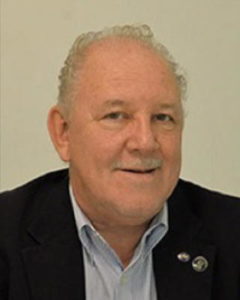
Ricardo Armentano
Theme Keynote | Theme 4: Computational systems & synthetic Biology; Multiscale modeling
Prof. Ricardo Armentano is a member of the EMBS IEEE Technical Committee on Cardiopulmonary Systems and Physiology-based Engineering. In 2019, he was conferred the IEEE R9 Eminent Engineer Award. He has served as EMBS Distinguished Lecturer, AdCom 2015 EMBS IEEE Latin America representative, and chaired the 32nd International Conference EMBC – IEEE Buenos Aires 2010. Prof. Armentano has acquired international recognition in the field of cardiovascular hemodynamics and arterial hypertension. He has 250+ publications including books, book chapters and peer-reviewed articles, and is on the editorial and reviewer boards of 15+ journals in the field of cardiovascular engineering. Recently, he was also selected as a Fellow of the International Academy of Medical and Biological Engineering (IAMBE). Prof. Armentano has carried out extensive academic, professional, and administrative tasks in the Americas and Europe as an educator and scientist. In his role as educator, he has designed, launched and managed 3 undergraduate and one postgraduate degree courses in Biomedical Engineering, along with a doctoral degree in signal and image processing that has been qualified with the highest categorizations in Argentina and Uruguay. For 20 years, he has served the university in several administrative posts like director of the research and development council, dean of the Faculty of Engineering, Exact and Natural Sciences, Executive Scientific Academic Director of the Favaloro University and Dr. Rene Favaloro Foundation. In his extensive academic trajectory, Prof Armentano has designed various transdisciplinary research groups, involving scientists, physicians, engineers, students and pioneered new research lines. Currently he is the Director of the UNDP Project URU/06/004 “Predictive and Preventive Cardiovascular Engineering Working Group”

Anna Maria Bianchi
Theme Keynote | Theme 5: Cardiovascular and Respiratory Systems Engineering
Anna Maria Bianchi is Full Professor in Biomedical Engineering at the Department of Electronics, Information and Bioengineering (DEIB) of the Politecnico di Milano. Her research interests are mainly related to the processing of biomedical signals and images and to the development of innovative methodologies for feature extraction, information enhancement and model development. Applications are both in physiological studies and in clinics through design of interpretative and diagnostic models. The methodological efforts focused mainly on the development of time-frequency analysis; parametric recursive identification; multi-variable parametric modelling; non-linear feature extraction; linear and non-linear synchronization of biomedical series; data, signal and image fusion related to the cardiovascular system and to the central neural system and their integrated analysis. In the last years, applications are in the field of medical informatics and artificial intelligence. Prof. Bianchi is scientific coordinator of the Medical Informatics Lab at DEIB and is member of the management committee of two inter-departmental Labs at Politecnico: the BrainLab@Polimi and PHEEL. She is author of 20 book chapters and more than 120 peer reviewed papers in ISI international journals, H-index=33, total citations > 4080 (Scopus). In 2011, she was awarded with the Martin Black Prize for the best article published in Physiological Measurement during 2010; since 2012 she is Fellow EAMBES (European Alliance for Medical and Biological Engineering and Science). Dr. Bianchi serves as a scientific expert in the EMBS Technical Committee on Neuroengineering and Technical Committee on Cardiopulmonary Systems. In 2011-2012 she was Associate Editor IEEE Transactions on Biomedical Engineering and since 2015 she is Associate Editor IEEE Transactions on Neural System and Rehabilitation Engineering. She is also Associate Editor of open access journal Frontiers in Signal Processing, section on Biomedical Signal Processing, and member of the Editorial Board of the Journal of Biomedical Signals Processing and Control and of Electronics — Open Access Journal.
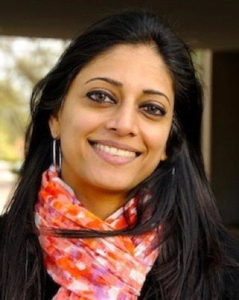
Sridevi Sarma
Theme Keynote | Theme 6: Neural and Rehabilitation Engineering
Sridevi Sarma received the B.S. degree in electrical engineering from Cornell University, Ithaca NY, in 1994; and an M.S. and Ph.D. degrees in Electrical Engineering and Computer Science from Massachusetts Institute of Technology in, Cambridge MA, in 1997 and 2006, respectively. From 2000-2003 she took a leave of absence to start a data analytics company. From 2006–2009, she was a Postdoctoral Fellow in the Brain and Cognitive Sciences Department at the Massachusetts Institute of Technology, Cambridge. She is now Associate Director for the Institute for Computational Medicine, Department of Biomedical Engineering, and Vice Dean for Graduate Education for the Whiting School of Engineering at Johns Hopkins University. Her research interests include modeling, estimation and control of neural systems using electrical stimulation. She is a recipient of the GE faculty for the future scholarship, a National Science Foundation graduate research fellow, a L’Oreal For Women in Science fellow, the Burroughs Wellcome Fund Careers at the Scientific Interface Award, the Krishna Kumar New Investigator Award from the North American Neuromodulation Society, and a recipient of the Presidential Early Career Award for Scientists and Engineers (PECASE) and the Whiting School of Engineering Robert B. Pond Excellence in Teaching Award.

César González
Theme Keynote | Theme 7: Biomedical Sensors and Wearable Systems
Prof César A González is PhD in Biomedical Engineering (UAM-I, México), Post-Doc in Bioengineering Department at the University of California at Berkeley, USA, and Visiting Professor at Tel Aviv University, Tel Aviv, Israel. Author of International Patents in the development of technology for non-invasive monitoring of critically ill patients and treatment of cancer with nanotechnology. Author of international book chapters and scientific articles in indexed journals. Tutor of degree projects in the areas of Health Sciences and Bioengineering at the undergraduate and graduate levels. Chair program of national and international conferences on Biomedical Engineering as well as titular professor of national and international summer schools on Bioimpedance. Research lines: “Biosensors of DNA, Tumor Cells and bacterium through Bioimpedance Spectroscopy Assisted with Magnetic Nanoparticles and Monoclonal Antibodies” and “Biomedical Instrumentation for Non-Invasive Detection of Cancer, Edema and Ischemia in Organs and Tissues through Magnetic Induction Spectroscopy”.
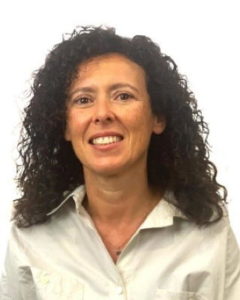
Arianna Menciassi
Theme Keynote | Theme 8: Biorobotics and biomechanics
Arianna Menciassi is Professor of Bioengineering and Biomedical Robotics at the Scuola Superiore Sant’Anna (SSSA, Pisa, Italy). She graduated in Physics at the Pisa University (1995), she obtained the PhD (1999) at SSSA and she was visiting professor in different universities in France since 2014 (Pierre and Marie Curie, in Paris, Besancon University, in Besancon). She is Full Professor of Biomedical Robotics at SSSA and team leader of the “Surgical Robotics & Allied Technologies” Area at The BioRobotics Institute. She is the Coordinator of the PhD in Biorobotics since 2018, and she was appointed in 2019 as Vice-Rector of the Scuola Sant’Anna.
Her main research interests involve surgical robotics, microrobotics for biomedical applications, biomechatronic artificial organs, smart and soft solutions for biomedical devices. She pays special attention to the combination between traditional robotics, targeted therapy and wireless solution for therapy (e.g. ultrasound- and magnetic-based).
She served in the Editorial Board of the IEEE-ASME Trans. on Mechatronics and she has been Topic Editor of the International Journal of Advanced Robotic Systems (2013-2020). In 2018 she was appointed as Editor of APL Bioengineering and of the IEEE Transactions on Medical Robotics and Bionics. She is Associate Editor for Soft Robotics and is serving as Editor of the IEEE Trans. on Robotics from Jan. 2021.
She is Co-Chair of the IEEE Technical Committee on Surgical Robotics. She is serving in the Steering Committee of iSMIT.
She received the Well-tech Award (Milan, Italy) for her researches on endoscopic capsules, and she was awarded by the Tuscany Region with the Gonfalone D’Argento, as one of the best 10 young talents of the region. Recently, she has been awarded with the KUKA Innovation Award, for her activities on robotic assisted focused ultrasound.

Zhen Xu
Theme Keynote | Theme 9: Therapeutic & Diagnostic Systems and Technologies
Zhen Xu is a Professor of Biomedical Engineering at the University of Michigan, Ann Arbor, MI. Her research focuses on ultrasound therapy and imaging, particularly histotripsy. She received the IEEE Ultrasonics, Ferroelectrics, and Frequency Control (UFFC) Outstanding Paper Award in 2006; The Federic Lizzi Early Career Award from The International Society of Therapeutic Ultrasound (ISTU) in 2015, the Fellow of American Institute of Medicine and Bioengineering in 2019, and The Lockhart Memorial Prize for Cancer Research in 2020. She is an associate editor for IEEE Transactions on UFFC and Frontiers in Bioengineering and Biotechnology, Vice President of IEEE Ultrasonics, and an elected board member of ISTU. She is a principal investigator of grants funded by NIH, Office of Navy Research, American Cancer Association, and Focused Ultrasound Foundation. She is also a co-founder of HistoSonics.
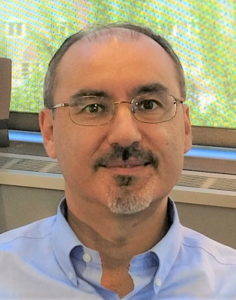
Christos Davatzikos
Theme Keynote | Theme 10: Biomedical and Health Infomatics
Christos Davatzikos is the Wallace T. Miller Sr. Professor of Radiology, with secondary appointment in Electrical and Systems Engineering and joint appointments with the Bioengineering and Applied Math graduate groups at U-Penn. He received his undergraduate degree by the National Technical University of Athens, Greece, in 1989, and Ph.D. from Johns Hopkins University, in 1994. He joined the faculty at the Johns Hopkins School of Medicine as Assistant Professor (1995) and later Associate Professor (2001) of Radiology. In 2002 he moved to Penn to direct the Section for Biomedical Image Analysis, and in 2013 he established the Center for Biomedical Image Computing and Analytics. His interests are in the field of imaging informatics. In the past 15 years he has focused on the application of machine learning and pattern analysis methods to medical imaging problems, including the fields of computational neuroscience and computational neuro-oncology. He has worked on aging, Alzheimer’s Disease, schizophrenia, brain development, and brain cancer. Dr. Davatzikos is an IEEE and AIMBE Fellow, a Distinguished Investigator at the Academy of Radiology Research in the USA, and member of various editorial boards.
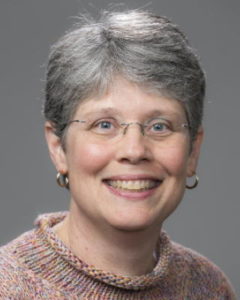
Ann Saterbak
Theme Keynote | Theme 11: Biomedical Engineering Education and Society
Ann Saterbak is Professor of the Practice in Biomedical Engineering and Director of the First-Year Engineering Program. After joining Duke in June 2017, she launched the new Engineering Design and Communication course. In this course, first-year students work in teams to solve community-based, client-driven problems and build physical prototypes. Prior to Duke, she taught at Rice University, where she was on the faculty since 1999. Saterbak is the lead author of the textbook, Bioengineering Fundamentals. At Rice and Duke, Saterbak’s outstanding teaching has been recognized through five school- and university-wide teaching awards. For her contribution to education within biomedical engineering, she was elected Fellow in the Biomedical Engineering Society and the American Society of Engineering Education. She is the founding Editor-in-Chief of Biomedical Engineering Education.
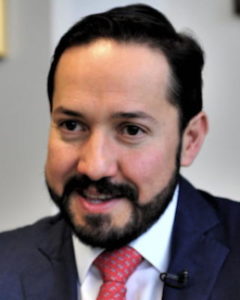
Guy Jean L. Savoir
Theme Keynote | Theme 12: Translational Engineering for Healthcare Innovation and Commercialization
Guy Jean L. Savoir is a Mexican businessman and entrepreneur with a strong focus on the pharmaceutical and healthcare industries. He is President of Carnot Laboratories, Chair at Techsphere Group, President at Panalab de Mexico, and Drugmex. He also participates on the boards of nonprofit organizations including, President of INCIDE (Foundation for Innovation and Science), Vice President of CFM (Mexican Pharmaceutical Counsel). He is also an active venture capital investor, founder of Savoir Capital.
